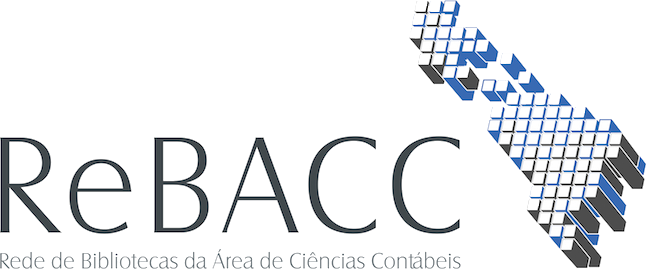Use este identificador para citar ou linkar para este item:
http://rebacc.crcrj.org.br/handle/123456789/4390| Título: | ANÁLISE DOS IMPACTOS DAS NORMAS INTERNACIONAIS DE CONTABILIDADE SOBRE O LUCRO LÍQUIDO E O PATRIMÔNIO LÍQUIDO DAS EMPRESAS DO SETOR DE EXTRAÇÃO E PROCESSAMENTO DE RECURSOS NATURAIS Analysis of impacts of international accounting standards on the net income and equity of companies in the industry of extraction and processing of natural resources |
| Editora / Evento / Instituição: | REVISTA DE CONTABILIDADE DO MESTRADO EM CIÊNCIAS CONTÁBEIS DA UERJ |
| Descrição: | O objetivo deste artigo foi verificar se existem diferenças significativas entre o valor do patrimônio líquido, do lucro líquido e do retorno sobre o patrimônio líquido (ROE) apurado nos anos de 2008 e 2009, período de transição, sob padrões contábeis distintos (IFRS e BRGAAP) das empresas de capital aberto que extraem e processam recursos naturais. Complementarmente, buscou-se identificar quais mudanças de práticas contábeis foram mais significativas e frequentes no período analisado. A amostra é composta por 17 empresas de capital aberto listadas na Bovespa que são classificadas em subsetores de mineração, minerais não metálicos, petróleo e gás, e papel e celulose. Em relação à metodologia, trata-se de uma pesquisa qualitativa e quantitativa, utilizando teste de média (T de Student e Wilcoxon) e o ICPI (Índice de Comparabilidade Parcial Inverso).Verificaram-se diferenças estatisticamente significativas entre o patrimônio líquido apurado nos anos de 2008 e 2009sob normas distintas (BRGAAP e CPC/IFRS), sendo que os principais CPCs responsáveis por essa diferença foram CPC 33 – Benefícios de aposentadoria, CPC15 – Combinação de Negócios, CPC 29 – Ativo Biológico e CPC 27 – Ativo Imobilizado, além dos impostos diferidos decorrentes das mudanças de práticas contábeis. Já a análise do Lucro Líquido de 2009 e do ROE em 2009 não revelou diferenças significativas entre os valores apurados sob normas distintas (BRGAAP e CPC/IFRS). O estudo é relevante visto que tem como proposta analisar os impactos daalteração de práticas contábeis dentro de um setor específico, contribuindo assim para um maior entendimento da realidade contábil do setor em questão.Palavras-chave: Contabilidade societária; Normas Internacionais de Contabilidade; Harmonizaçãocontábil.ABSTRACTThe aim of this paper was to determine whether there are significant differences between the value of shareholders' equity and net income and return on equity (ROE) calculated for the years 2008 and 2009, transition period, under different accounting standards (IFRS and BRGAAP) of publicly traded companies that extract and process natural resources. In addition, we sought to identify changes in accountingpractices were more significant and frequent in this period. The sample consists of 17 publicly traded companies listed on Bovespa, which are classified into sub-sectors of mining, nonmetallic minerals, oil and gas and pulp and paper. Regarding the methodology, it is a qualitative and quantitative research, using test medium (Student's t and Wilcoxon) and ICI (partial inverse index of comparability). There was statistically significant differences between shareholders' equity calculated in 2008 and 2009 underdifferent rules (BRGAAP and CPC / IFRS), and the main CPCs responsible for this difference were CPC 33 - Retirement benefits, CPC 15 - Business Combinations, CPC 29 - Biological Assets and CPC 27 - Fixed Assets, plus deferred taxes resulting from changes in accounting practices. The analysis of Net Income in 2009 and ROE in 2009 revealed no significant differences between the amounts calculatedunder different rules (BRGAAP and CPC / IFRS). The study is relevant as it has proposed to analyze the impacts of changes in accounting practices within a specific industry, thus contributing to a better understanding of the reality of the accounting industry in question.Keywords: Corporate accounting; International Accounting Standards; Accounting harmonization. The aim of this paper was to determine whether there are significant differences between the value of shareholders' equity and net income and return on equity (ROE) calculated for the years 2008 and 2009, transition period, under different accounting standards (IFRS and BRGAAP) of publicly traded companies that extract and process natural resources. In addition, we sought to identify changes in accounting practices were more significant and frequent in this period. The sample consists of 17 publicly traded companies listed on Bovespa, which are classified into sub-sectors of mining, nonmetallic minerals, oil and gas and pulp and paper. Regarding the methodology, it is a qualitative and quantitative research, using test medium (Student's t and Wilcoxon) and ICI (partial inverse index of comparability). There was statistically significant differences between shareholders' equity calculated in 2008 and 2009 under different rules (BRGAAP and CPC / IFRS), and the main CPCs responsible for this difference were CPC 33 - Retirement benefits, CPC 15 - Business Combinations, CPC 29 - Biological Assets and CPC 27 - Fixed Assets, plus deferred taxes resulting from changes in accounting practices. The analysis of Net Income in 2009 and ROE in 2009 revealed no significant differences between the amounts calculated under different rules (BRGAAP and CPC / IFRS). The study is relevant as it has proposed to analyze the impacts of changes in accounting practices within a specific industry, thus contributing to a better understanding of the reality of the accounting industry in question. Keywords: Corporate accounting; International Accounting Standards; Accounting harmonization. |
| URI: | http://rebacc.crcrj.org.br/handle/123456789/4390 |
| Outros identificadores: | http://www.atena.org.br/revista/ojs-2.2.3-06/index.php/UERJ/article/view/1284 |
| Aparece nas coleções: | Revista de Contabilidade do Mestrado em Ciências Contábeis da UERJ |
Arquivos associados a este item:
Não existem arquivos associados a este item.
Os itens no repositório estão protegidos por copyright, com todos os direitos reservados, salvo quando é indicado o contrário.

